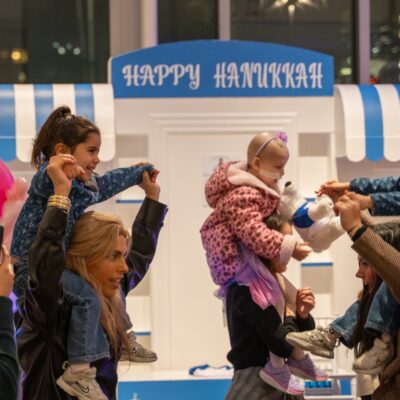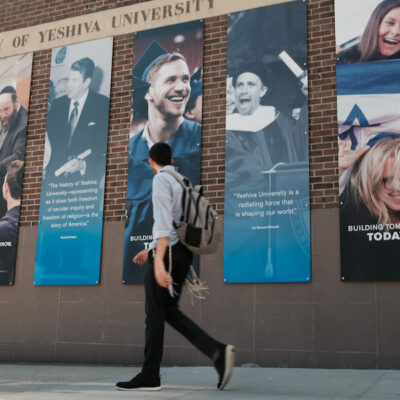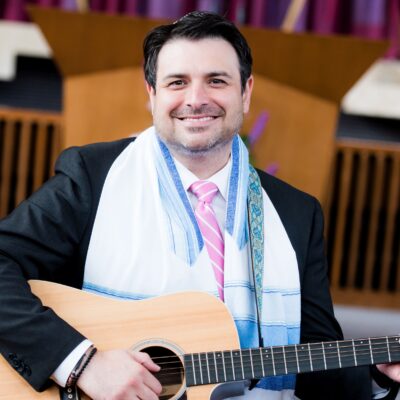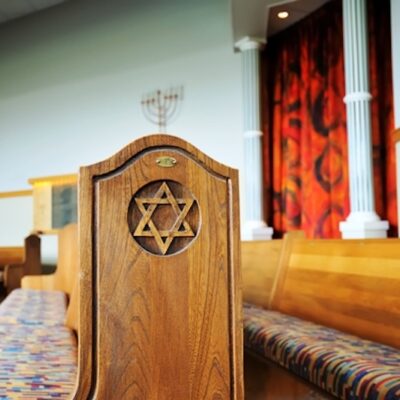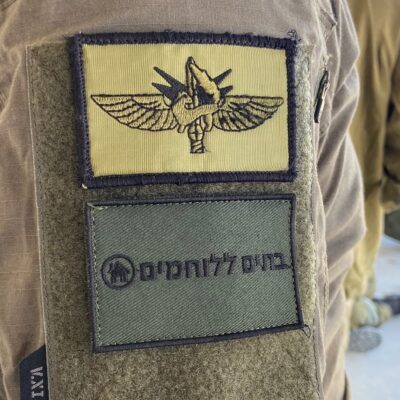Exclusive
JFNA poll shows most American Jews plan to donate to war-related causes in Israel
Another survey shows that almost 90% of U.S. Jews heard about the March for Israel; participants came away feeling empowered, passionate, comforted and enthusiastic

Alex Wong/Getty Images
Students participating in the March for Israel on the National Mall in Washington, D.C., on Nov. 14, 2023.
Most American Jews plan to donate money to benefit Israelis affected by the ongoing war in Israel, according to a survey commissioned by the Jewish Federations of North America, which was shared exclusively with eJewishPhilanthropy.
The poll, which was conducted by Benenson Strategy Group from Oct. 29-Nov. 1, found that of the 57% of American Jews who said they “probably will” or “definitely will” give to a cause related to the war, 78% said they would specifically give to organizations supporting Israelis and 12% said they would give to support both Israelis and Palestinians. Most said they would donate more than they did in response to other disasters.
The surveyors interviewed 2,199 Jewish Americans and 1,578 non-Jewish Americans for the poll, parts of which JFNA released earlier this month, including the finding that 70% of American Jews said they felt less secure following the Oct. 7 attacks and the ongoing war between Israel and Hamas, which is temporarily paused as part of a hostage release deal.
When asked which causes would be “most meaningful” to support, most respondents — 62% of Jews and 55% of the general population — said emergency medical services and health care. In addition, 45% of Jewish respondents said providing supplies to Israeli troops; 41% said supporting the Jewish Agency for Israel’s Fund for the Victims of Terror; 34% said providing the basic needs for frontline communities; and 28% said providing trauma relief and psychosocial support.
The least popular causes were: respite (4%), supporting volunteers (4%), mid- to long-term needs (3%) and “special populations” (2%), apparently referring to people with disabilities and other special needs.
The survey found that 45% of Jewish respondents said they had made donations to a “Jewish charity or cause” in the past year. Of these, 90% said they had made the donations either before or both before and after Oct. 7, while 10% said they only gave money after the attacks.
Last week, Benenson Strategy Group ran another poll for JFNA, also surveying 2,199 Jewish Americans and 1,578 non-Jewish Americans, about the Nov. 14 March for Israel in Washington, D.C., which found that a large majority of the American Jewish respondents — 87% — said they had been aware of the event, nearly twice as many as said that they were aware of pro-Israel rallies in their area (46%). Among the general population, 61% said they had heard about the march and 20% said they were aware of local pro-Israel events.
While almost 90% of the Jewish respondents said they had heard about the March for Israel, a far smaller number said that they participated in it, either in-person (11%) or virtually by watching the livestream (10%).
Almost all of the people who said they attended the rally in-person or watched it online (99%) said they did so to “show support for the release of the hostages.” The other main reasons among Jewish respondents were: desire to show the U.S. government that we won’t be silent (84%); support U.S. military aid to Israel (79%); and concerns of rising antisemitism in the U.S. (74%).
Among the non-Jewish respondents who said they participated in the March for Israel, 94% said they did so to show the U.S. government that we won’t be silent; 92% said to support U.S. military aid to Israel; and 90% said it was because of concerns about rising antisemitism.
Asked how they felt participating in the rally, the most common responses were: passion (47%), empowerment (47%), comfort (45%), enthusiasm (42%) and sympathy (40%). The least common responses were loneliness and hatred, each of which got less than 1%.
Jewish respondents were split on whether the march made them feel safer, with 48% saying that it did to some extent and 52% saying it didn’t at all. Most Jewish respondents said the march made them feel more unified as a Jewish community, with 40% saying they felt that “very much,” 27% saying they felt it somewhat and 18% saying they felt it “a little.”
A majority of the Jewish respondents also said they wanted to stay involved following the rally, with 42% saying they felt that very much, 22% saying they did somewhat and 21% saying they did a little.
Mimi Kravetz, JFNA’s chief impact and growth officer, said the polls showed that the Jewish community is interested in acting on behalf of Israel and that they justified her organization’s activities since the Oct. 7 attacks.
“There is an intense desire in the Jewish community to take action, and we’re hearing that both directly from our communities and seeing it in this data highlighting people’s desire to give, their desire to show up for rallies in their hometowns and in Washington, DC, and their desire to advocate on behalf of Israel,” Kravetz said in a statement to eJP. “For a community overwhelmed by rising antisemitism and anti-Israel sentiment, it’s gratifying to see how our Federations’ actions serve to unify our people, and that feels incredibly important during this fraught moment.”

 Add EJP on Google
Add EJP on Google


